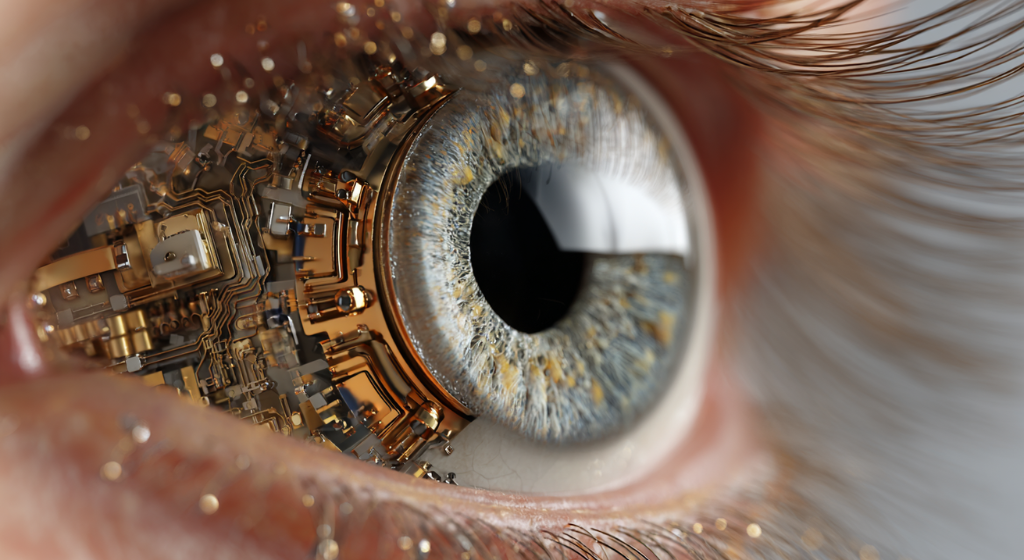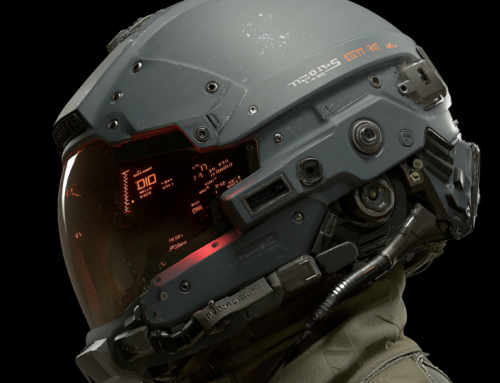
An AI-powered retinal implant known as PRIMA has enabled 84% of formerly blind patients to read again after years of vision loss due to macular degeneration, marking a historic milestone in artificial vision and paving the way for future AI-driven treatments to reverse blindness. (Source: Image by RR)
Two-Hour Surgery Offers New Hope for Macular Degeneration Patients
In a historic breakthrough for artificial vision, researchers in Europe have successfully used an AI-powered retinal implant, named PRIMA, to help blind patients regain the ability to read after years without sight. The device, according to an article in interestingengineering.com, was tested on individuals suffering from geographic atrophy (GA)—the advanced, untreatable form of dry age-related macular degeneration (AMD) that destroys the macula, the part of the eye responsible for central vision.
The multicenter clinical trial, led by UCL’s Institute of Ophthalmology and Moorfields Eye Hospital, enrolled 38 patients across 17 hospitals in five countries, including the UK, France, Italy, and the Netherlands. Astonishingly, 84% of participants were able to recognize letters, numbers, and words following implantation, with most reading up to five lines on a standard vision chart. “In the history of artificial vision, this represents a new era,” said Mr. Mahi Muqit, UCL associate professor and senior consultant at Moorfields. He emphasized that the minimally invasive two-hour procedure could make the treatment widely accessible to blind patients worldwide.
The PRIMA chip, developed by Science Corporation, is a 2mm-by-2mm microelectronic implant inserted beneath the retina. It works in tandem with augmented-reality glasses and a waist-worn processor, which capture visual scenes through a camera. Advanced AI algorithms convert the images into infrared signals projected onto the implant, which then translates them into electrical impulses sent to the brain via the optic nerve—essentially creating a new visual channel. Over time, patients learn to interpret these signals, enabling them to read, navigate, and recognize shapes again without harming their remaining peripheral vision.
For many participants, the experience was profoundly emotional. UK patient Sheila Irvine described her restored sight as “dead exciting,” adding, “It’s not simple, learning to read again, but the more hours I put in, the more I pick up.” The trial’s global lead, Dr. Frank Holz of the University of Bonn, hailed the results as a milestone for neuroprosthetics. With no approved treatments currently available for GA, Muqit believes PRIMA opens the door to a new era of AI-driven medical devices capable of reversing once-permanent blindness.
read more at interestingengineering.com







Leave A Comment